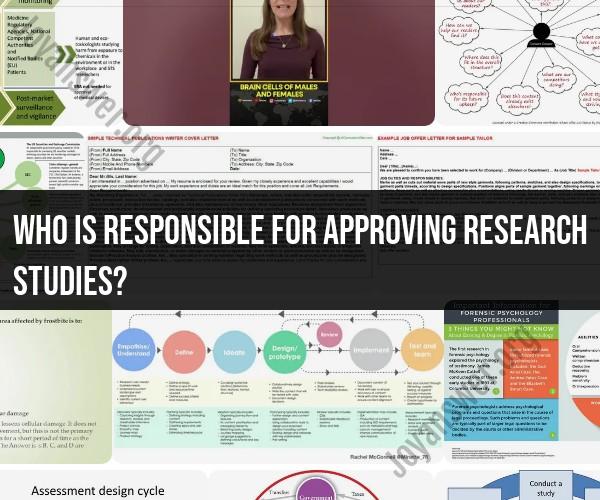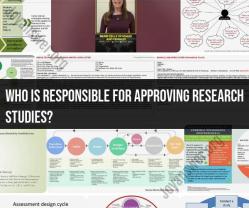Who is responsible for approving research studies?
The approval of research studies typically involves multiple parties, and the specific roles and responsibilities can vary depending on the type of research, the institution or organization involved, and ethical considerations. Here are some key roles and responsibilities related to research study approval:
Principal Investigator (PI): The PI is the individual responsible for conducting the research. They are often the one who initiates the research study, designs the study protocol, and oversees all aspects of the research. The PI is typically responsible for submitting the research proposal for approval.
Institutional Review Board (IRB): An IRB is a committee that reviews and approves research involving human participants to ensure that the research is ethical, complies with regulatory requirements, and protects the rights and well-being of participants. The IRB plays a crucial role in approving or disapproving research studies.
Ethics Committee: In some cases, especially in medical research, an ethics committee may be responsible for reviewing and approving research studies. Their focus is on ensuring that research involving human subjects adheres to ethical principles.
Funding Agencies: If the research study is funded by an external agency, that agency may have its own review and approval process. Researchers often need to submit their proposals to the funding agency for approval before conducting the research.
Collaborators and Co-Investigators: Depending on the complexity of the research, there may be collaborators or co-investigators who share responsibility for the study. Their roles and responsibilities should be clearly defined in the research protocol.
Research Participants: While not responsible for approving the study, research participants have the right to provide informed consent or decline to participate. Researchers have a responsibility to obtain informed consent from participants, ensuring they understand the study's purpose, procedures, and potential risks.
Regulatory Bodies: In some cases, research studies may require approval from regulatory bodies, such as the Food and Drug Administration (FDA) for clinical trials involving drugs or medical devices.
Research Institution: The institution where the research is conducted may have its own internal review and approval processes. This can include administrative approvals, safety reviews, and compliance checks.
Data Monitoring Committees: In long-term or clinical trials, there may be data monitoring committees responsible for reviewing ongoing data and ensuring the safety and integrity of the study.
Legal and Compliance Teams: Organizations often involve legal and compliance teams to ensure that research activities comply with legal requirements and regulations.
It's important to note that the approval process for research studies can be complex and may involve several levels of review. Researchers should be aware of the specific requirements and responsibilities associated with their research and seek guidance from relevant authorities, such as IRBs or ethics committees, to ensure compliance with ethical and regulatory standards.


